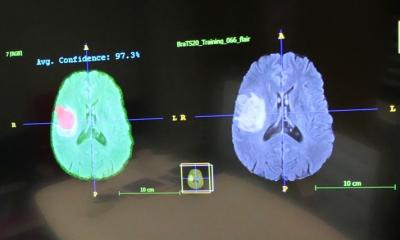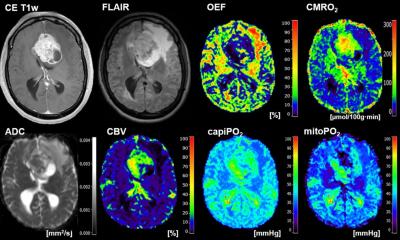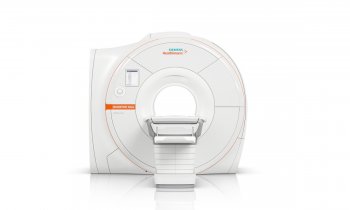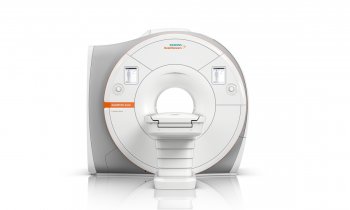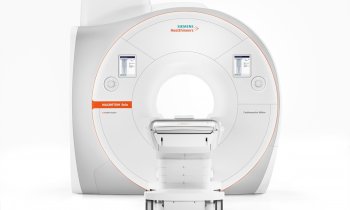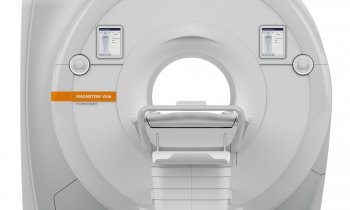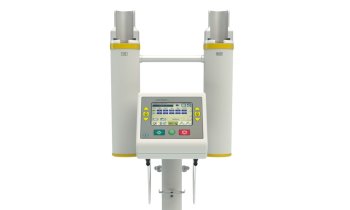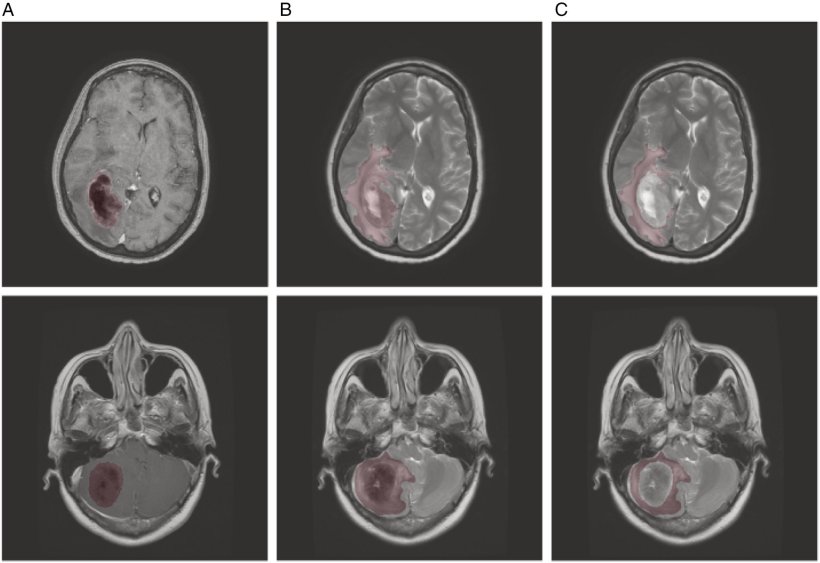
Image source: Najafian K, Rehany B, Nowakowski A et al., Neuro-Oncology Advances 2024 (CC BY-NC-ND 4.0)
News • Machine learning prediction
AI opens non-surgical way to detect brain cancer metastasis
In a new study, MRI combined with machine learning reveals presence of brain cancer cells with 85% accuracy
Researchers have developed an artificial intelligence (AI) model to detect the spread of metastatic brain cancer using MRI scans, offering insights into patients’ cancer without aggressive surgery.
The proof-of-concept study published in the journal Neuro-Oncology Advances, co-led by McGill University researchers Dr. Matthew Dankner and Dr. Reza Forghani, alongside an international team of clinicians and scientists, demonstrated the AI model can detect the presence of cancer cells in surrounding brain tissue with 85% accuracy. Researchers tested the model using MRI scans from over 130 patients who had surgery to remove brain metastases at The Neuro (Montreal Neurological Institute-Hospital). They validated the AI’s accuracy by comparing its results to what doctors observed in the tumour tissue under a microscope.
With further development, our AI model could become a part of clinical practice, which can help us catch cancer spread within the brain earlier and more accurately
Benjamin Rehany
Brain metastases, the most common type of brain cancer, occur when cancer cells from other parts of the body spread to the brain. These tumours can be particularly aggressive when invasive cancer cells grow into surrounding healthy brain tissue, making them harder to treat. “Our previous research found that invasive brain metastases are linked to shorter survival and a higher risk of tumour regrowth. These findings demonstrate the enormous potential of machine learning to soon improve our understanding of cancer and its treatment,” said Dankner, an Internal Medicine Resident at McGill and post-doctoral researcher at the Rosalind & Morris Goodman Cancer Institute.
The AI model detects subtle changes in the surrounding brain tissue that indicate cancer has spread, spotting patterns often too faint for traditional imaging methods that rely on human interpretation. It was developed by Forghani’s lab during his time at the Research Institute of the McGill University Health Centre and the University of Florida College of Medicine.
Earlier, the researchers identified drugs that could potentially treat some brain metastases. However, to determine which patients may ultimately benefit from this approach, doctors need to know whether the cancer has spread into the surrounding tissue. Surgery is the most common solution, but it isn’t always an option for patients, especially if their tumours are hard to reach or their health makes surgery too risky. “With further development, our AI model could become a part of clinical practice, which can help us catch cancer spread within the brain earlier and more accurately,” said Dr. Benjamin Rehany, a Radiology Resident at the University of Toronto and one of the primary authors of the publication.
While their work is still in the early stages, the researchers plan to expand the study with larger datasets and refine the AI model for clinical use.
The research was supported by the Canadian Cancer Society, the Canadian Institutes of Health Research, the Brain Canada Foundation, Health Canada, Fonds de recherche du Québec - Santé, and the Fondation de l’Association des radiologistes du Québec.
Source: McGill University
17.01.2025



